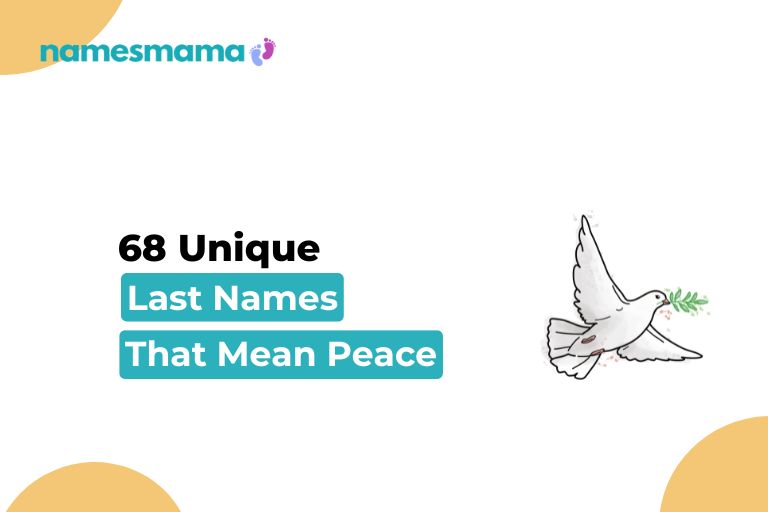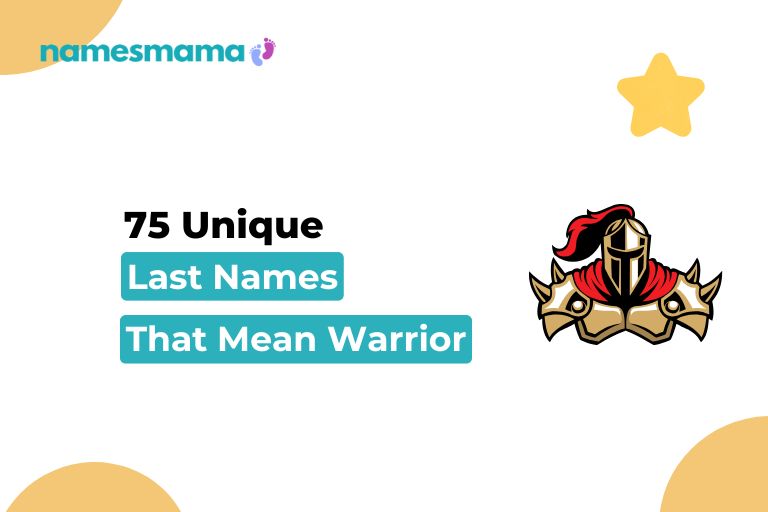70 Unique Japanese Last Names With Dark Meanings
Japan’s vast array of surnames stems from its rich culture and language. These last names carry deep historical and symbolic meaning.
Many reflect nature’s beauty or noble lineage, but some have darker, more mysterious connotations.
Certain surnames link to death and shadows, while others bring to mind ghosts and curses. These names provide insight into Japan’s spooky folklore and superstitions.
This list of Japanese last names with ominous meanings will captivate you, whether you’re into linguistic oddities or have a passion for all things dark and mysterious.
Japanese Last Names With Dark Meanings
Shibata (柴田 / 死畑) – Can mean “death field” depending on the kanji used.
Hakaishi (墓石) – “Tombstone,” a surname connected to burial sites.
Shindou (神道 / 進藤) – Can mean “way of the gods” but sometimes associated with spirits.
Kuroiwa (黒岩) – “Black rock,” possibly linked to gravestones or mourning.
Yagami (八神) – “Eight gods,” sometimes associated with supernatural myths.
Kuronuma (黒沼) – “Black swamp,” often evoking eerie or cursed places.
Kurosawa (黒沢) – “Black swamp/marsh,” linked to deep, dark waters.
Kuroki (黒木) – “Black tree,” sometimes symbolizing decay or death.
Anzai (安斎) – “Quiet temple,” which can imply a dark, eerie atmosphere.
Kurata (倉田) – “Dark rice field,” sometimes associated with isolation.
Akabane (赤羽) – “Red feathers,” often linked to blood symbolism.
Chino (血野) – “Blood field,” a surname with a strong, ominous meaning.
Satsuma (薩摩) – Historically tied to samurai but contains the kanji for “killing” (殺).
Tachibana (橘) – A common name but linked to a clan known for battles and conflict.
Shikata (鹿田) – While it means “deer field,” it can be associated with hunted animals.
Fujii (藤井) – “Wisteria well,” sometimes linked to old, abandoned places.
Magari (曲) – “Twist or distortion,” often implying misfortune.
Yamino (闇野) – “Dark field,” an ominous and eerie surname.
Norikawa (呪川) – “Cursed river,” a rare surname but historically recorded.
Kadowaki (門脇) – “Beside the gate,” sometimes linked to old burial entrances.
Oniyama (鬼山) – “Demon mountain,” a real surname found in rural areas.
Kijin (鬼神) – “Demon god,” an old samurai-era surname.
Kitsunezuka (狐塚) – “Fox mound,” linked to supernatural fox spirits (kitsune).
Tenguchi (天狗地) – “Land of the tengu,” linked to mischievous mountain spirits.
Takashiro (高城) – “High castle,” sometimes associated with haunted places.
Namida (涙) – “Tears,” symbolizing sorrow, sadness, or tragedy.
Hisakawa (久川) – “Long river,” sometimes linked to never-ending suffering.
Fushikawa (伏川) – “Hidden river,” implying something eerie lurking beneath.
Mizuki (水木) – “Water tree,” which can be tied to drowned spirits in folklore.
Aokigahara (青木ヶ原) – “Plain of green trees,” the real surname Aoki comes from this name, which is famously linked to Japan’s “suicide forest.”
Kageyama (影山) – “Shadow mountain,” evoking mystery and secrecy.
Kageura (影浦) – “Shadow bay,” symbolizing hidden depths.
Kurusu (来栖) – “Coming nest,” sometimes linked to ill fate.
Yamikage (闇影) – “Dark shadow,” a rare but eerie surname.
Kurohashi (黒橋) – “Black bridge,” reminiscent of haunted crossings.
Kurose (黒瀬) – “Black rapids,” symbolizing danger in water.
Kuroba (黒羽) – “Black feathers,” often associated with crows or omens.
Kuroshima (黒島) – “Black island,” linked to isolation and mystery.
Anraku (安楽) – “Peaceful ease,” ironically linked to Buddhist afterlife beliefs.
Yorugami (夜神) – “Night god,” an uncommon but ominous surname.
Shikama (鹿間) – “Deer space,” sometimes linked to Shinto sacrificial rituals.
Shindō (死道) – “Death path,” an extremely rare but recorded surname.
Tsumura (津村) – “Harbor village,” but used in ghost stories about drowned souls.
Hazama (間) – “Gap” or “interstice,” referring to the space between life and death.
Hizuki (氷月) – “Frozen moon,” linked to the stillness of death.
Rokkaku (六角) – “Six angles,” referencing old grave markers and Buddhist relics.
Banshō (晩鐘) – “Evening bell,” often associated with funerals.
Yūki (夕鬼) – “Evening demon,” a rare historical surname.
Higan (彼岸) – “The other shore,” a Buddhist term for the afterlife.
Reizei (冷泉) – “Cold spring,” symbolizing death or ghosts.
Akaishi (赤石) – “Red stone,” sometimes referring to bloodstains.
Akanuma (赤沼) – “Red swamp,” associated with blood-filled battlefields.
Akagawa (赤川) – “Red river,” evoking imagery of blood-soaked water.
Tsubaki (椿) – “Camellia,” a flower associated with beheading in samurai culture.
Inukai (犬飼) – “Dog keeper,” linked to battlefield scavenger dogs.
Shirahama (白浜) – “White beach,” but appears in stories of ghostly shorelines.
Tatara (多々良) – A name tied to iron forges, war, and weapons.
Kusaka (草鹿) – “Grass deer,” linked to hunted prey and sacrifice.
Kamizuki (神月) – “God’s moon,” but linked to supernatural horror stories.
Jigoku (地獄) – “Hell,” an extremely rare but real surname found in history.
Noroi (呪井) – “Cursed well,” a historically recorded surname.
Fujimaru (藤丸) – “Wisteria circle,” linked to binding curses in folklore.
Tsubame (燕) – “Swallow,” but in old Japan, swallows were bad omens.
Makabe (真壁) – “True wall,” appearing in folklore about trapped spirits.
Nure (濡江) – “Wet river,” evoking images of drowning victims.
Otonashi (音無) – “Soundless,” often associated with spirits of the silent dead.
Iwakura (岩倉) – “Stone warehouse,” linked to ancient tombs.
Fukagawa (深川) – “Deep river,” symbolizing death by drowning.
Shizukawa (静川) – “Silent river,” referring to eerie, lifeless waters.
Togakushi (戸隠) – “Hidden door,” linked to secretive and haunted places.
Closing Remarks
Japanese last names are way different from many last names, and they have unique meanings. I hope you enjoyed reading this article, and thanks for being here.






